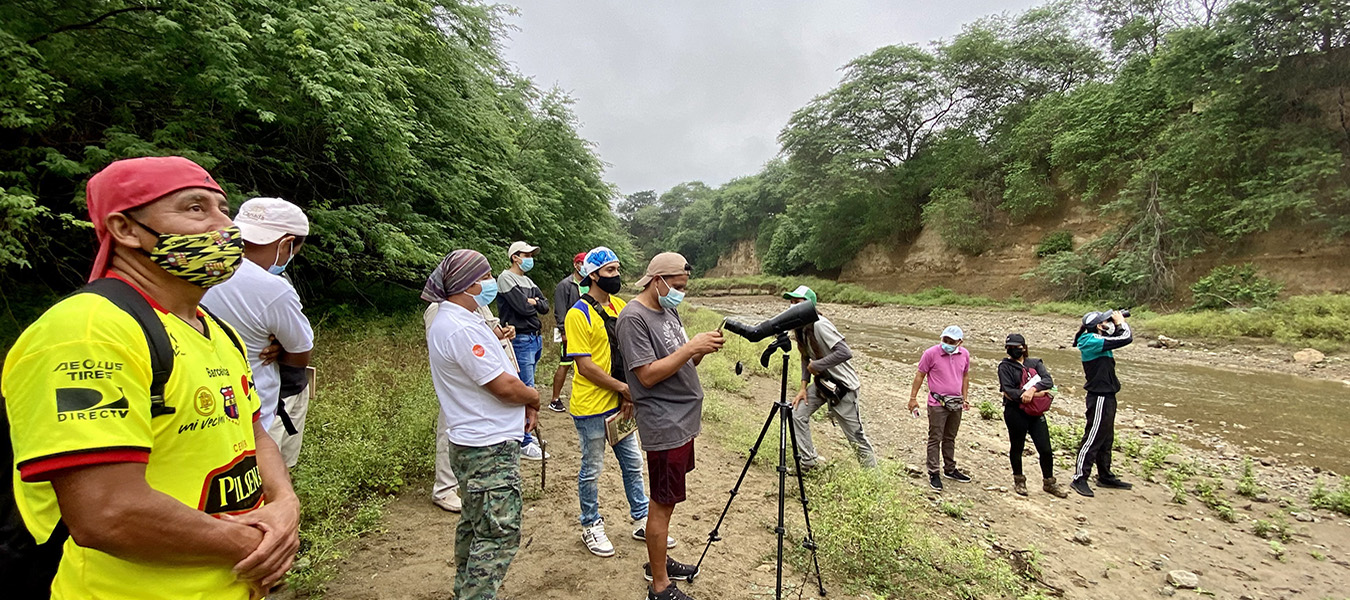
Lack of knowledge and awareness about the environment is one reason why conservation is such a challenge. This is why Ceiba focuses on projects that emphasize community involvement and education: involving and educating young people and adults is the only way to manage natural resources to promote a sustainable future.
We joined forces with Latino Earth Partnerships to help local teachers acquire environmental education tools they can apply in their own classrooms
Ceiba has partnered with the University of Wisconsin Arboretum’s Latino Earth Partnership (LEP) to promote a school curriculum which involves environmental education. Ceiba, with the help of LEP interns, work in the rural schools on the coast to engage students and teachers to create school gardens, lead environmentally themed activities in classrooms, give public presentations on environmental themes in local communities, and lead trips to the Lalo Loor Dry Forest Reserve.
Bringing kids to the forest, and showing them a monkey for the first time, brings a smile to everyone's face
The EcoCenter at the Lalo Loor Dry Forest Reserve serves as a focal point for outdoor education and provides a space for training in biological sciences. In the center, visitors will encounter information on dry forest ecology, marine biology, regional culture, and the natural history of the region. The reserve also has a native plant garden which demonstrates the north-south climate gradient that exists along Ecuador’s coast while the medicinal plant garden is host to a variety of plants used in traditional medicine.
The reserve’s forest and research station provide a unique opportunity to teach local youth about field biology. We offer training in sampling water quality, studying wildlife, photography, and thereby offer an avenue to appreciating the importance of the natural world. The reserve also has a native plant garden which demonstrates the north-south climate gradient that exists along Ecuador’s coast while the medicinal plant garden is host to a variety of plants used in traditional medicine. Some of the students go on to work with Ceiba on citizen-science programs that deliver data to our ongoing research programs, while others proceed to develop their own ecotourism or conservation projects.
We expand our educational programming by partnering with local non-profits and universities.
In addition to the Latino Earth Partnership, we have several local and regional partners with whom we collaborate with frequently.
A Mano Manaba is a non-profit that works in northern Manabí. They work to improve the lives of the most vulnerable, especially women and girls, through education.
The Pontifical Catholic University of Ecuador is the oldest private university in Ecuador and strongly committed to training young scientists. We often host biology and ecology classes at the Lalo Loor Dry Forest Reserve so they can practice field techniques and learn about ecology first-hand.
Laica Eloy Alfaro de Manabí University is a university located on the coast, in Manta. We host groups of students as well as interns who contribute to many of our on-going projects.